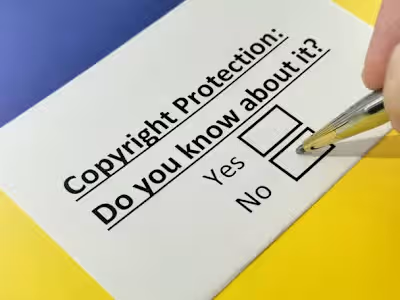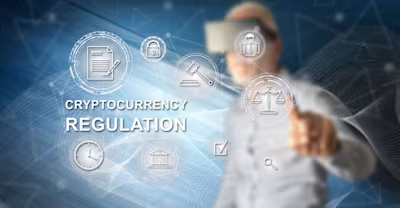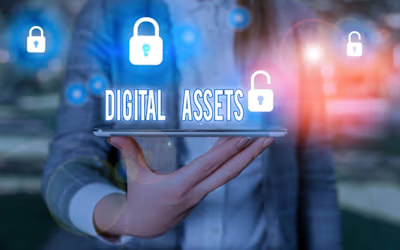Decentralized Autonomous Organizations( DAOs) and Legal Personh…
Despite the immense potential DAOs have, their legal status remains questionable. This begs the question, should laws be amended to accommodate this novel form of a corporation? And what will be the consequences of granting them legal personhood? Join us as we dive deep into the controversial discussion of DAOs and legal personhood.
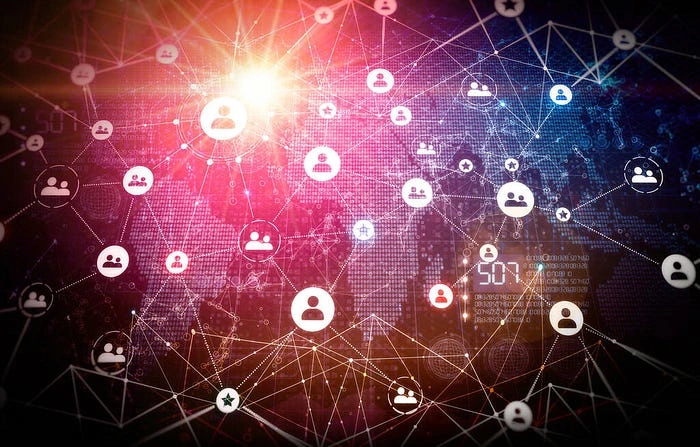
‘’Decentralized Autonomous Organizations (DAOs) sound like something out of the future. And in a way, they are’’. Zack Smith, Legal Fellow and Manager, Meese Center for Legal Studies
Table of Contents
Key Takeaways
Decentralized Autonomous Organizations are a novel form of digital organization where people organize themselves to form a company without central leadership.
DAOs are formed by groups of strangers who meet on platforms like Twitter and Discord and share common goals.
Different types of DAOs perform different functions. They are distinguished by the technology they leverage, their modus operandi, and their structures.
The legal status of DAOs remains questionable in many jurisdictions.
DAOs are ideal for operating and managing social and economic activities in the Web 3 world.
DAOs are a possible solution to the age-old Principal-Agent Problem.
DAOs may be susceptible to the Principal-Agent dilemma if not properly organized.
Without legal personhood and limited liability, DAOs are significantly disadvantaged, and their potential to transform corporate formation is severely curtailed.
Understanding Decentralized Autonomous Organizations
Decentralized Autonomous Organizations are a novel form of digital organization where people organize themselves to form a company without central leadership. These companies operate online, and their members rarely meet physically, as members of traditional companies do.
Generally, members of a DAO purchase tokens to participate in its governance. Tokens may be used to encourage certain behaviors among members. For instance, members may be issued tokens to perform tasks that benefit the organization, like environmental conservation, raising awareness, etc.
One of the most endearing aspects of this new type of organization is that it is powered by block chain technology, making the transactions they engage in immutable and transparent. The primary characteristics of DAOs include the following:
All members can vote for or against a proposed management decision.
Unlike conventional corporations, DAOs lack central leadership.
The rules that govern DAOs are contained in smart contracts and are available for public inspection.
The decisions arrived at by members are automatically implemented without the need for a third party.
Conventional companies utilize regulations and incorporation documents to determine their objectives and modes of operation. However, as people are wont to be, rules are not always followed. Additionally, investors who cannot participate in companies’ government often find themselves on the losing end due to mismanagement. Many investors have lost their hard-earned money due to financial mismanagement. The Enron Scandal, for instance, is instructive. To date, many wonder how one of America’s biggest corporations fell overnight.
Luckily for investors today, decentralized autonomous organizations provide a viable solution to some of the issues that have plagued traditional companies for decades. Chief among the benefits that DAOs offers investors is transparency and operational efficiency. Indeed, this is a possible solution to the age-old Principal-Agent Problem. In a DAO, members oversee the implementation of their decisions, and usage of funds without an intermediary. Decisions arrived at by members are executed automatically without the need of an intermediary
DAOs governing rules are embedded in smart contracts code. The smart contracts are publicly auditable, verifiable and tamper evident, allowing all members and potential members to understand how the protocol operates. Members determine these rules by voting. Like articles of association, the rules embedded in the smart contracts enumerate the objectives of a DAO.
Generally, DAOs are formed by groups of strangers, who share common goals, via platforms like Twitter and Discord. DAOs are created for different purposes, including charity. In the recent past, we have witnessed DAOs being developed with the sole purpose of purchasing sports franchises, collecting digital artworks, and even to raise funds for the Ukrainian Army , which is currently engaged in a war with Russian forces.
Since their rules are embedded in smart contracts, they are immutable, transparent, and tamper proof. However, if the members wish to amend the rules, they may do so through subsequent voting. No one can change the rules without members knowing. Hence, no group of individuals can manipulate the rules to their advantage without it being readily apparent.
There are different types of DAOs. DAOs are distinguished by the technology they leverage, their modus operandi, and their structures. Below is a brief outline of popular kinds of DAOs:
Social DAOs
As previously stated, DAOs exist without a central leadership and are operated by members. DAOs provide members with a secure, efficient, and transparent way of decision-making. Social DAOs are efficient, safe, and transparent, enabling members to exchange things of value securely. Democracy is at the core of social DAOs. Members vote when required to make crucial decisions, and the majority vote decides the fate of an agenda.
Social DAOs serve various purposes. Some are used to create decentralized markets where individuals trade goods and services. Others are leveraged as fundraising platforms where investors pool funds for a project or initiative, like biotech research or environmental conservation.
Undoubtedly, social DAOs are innovative ways of operating firms democratically, enabling their members to safely and efficiently realize their goals. Friends with Benefits is a prominent example of a social DAO. People become members of social DAOs by purchasing tokens, NFTs, or through invitation.
Protocol DAOs
Protocol DAOs help govern decentralized protocols like decentralized exchanges, lending/borrowing applications, among many other dapps (decentralized applications). The most prominent protocol DAOs include Marker DAO, Yearn Finance, and Uniswarp.
Entertainment DAOs
These types of DAOs offer their members decentralized fun, enabling creative members to bring their innovative ideas to fruition. Bored Ape Yacht Club, for instance, has been planning to set up its entertainment DAO, where its native token holders can vote on various creative decisions.
Philanthropy DAOs
Philanthropy DAOs help members advance social responsibilities designed to impact the Web 3 world, which involves concepts like cryptocurrency, decentralized Finance, and individual control of personal data. Big Green DAO, the first non-profit DAO, has established itself as a trendsetter in championing social responsibility initiatives around the Web 3 landscape. Ukraine DAO is another widespread philanthropy DAO in the Web 3 scene.
Collector DAOs
Collector DAOs help artists who create NFTs to establish ownership. Non Fungible Tokens ( NFTs) are cryptographic assets on a block chain that represent an intangible item, such as a photo, piece of art, or a Tweet, that is immutable because of its exceptional characteristics. Flamingo is a famous collector DAO in the market. The unique qualities each NFT possesses act as proof of ownership and authenticity.
Venture DAOs
Venture DAOs are also known as investment DAOs. They support investment in virtually all sectors, including real estate, NFTs, etc. Young people across the globe support venture DAOs because of their transparency and accessibility. Krause House is a prominent investment DAO operated by basketball fans.
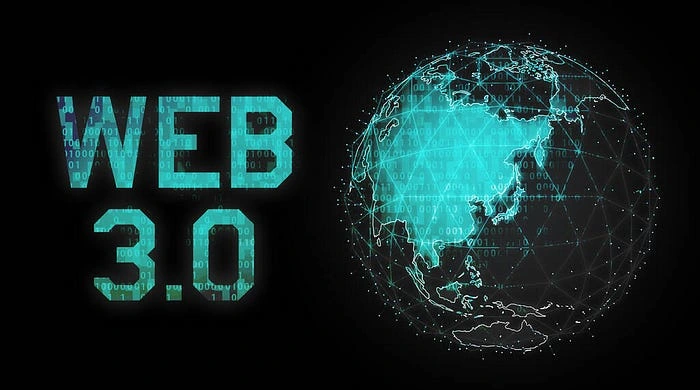
“You’re going to start seeing open-source, self-executing contracts gradually improve over time. What the Internet did to publishing, block chain will do to about 160 different industries. It’s crazy.” Patrick M. Byrne, CEO of Overstock.com
Challenges of Granting Legal Personhood to DAOs
The concept of corporate legal personhood has always been controversial since its inception. Since the 18th century, corporations have fought tooth and nail to expand their rights. In the Santa Clara County v. Southern Pacific Railway road case, the US Supreme Court granted corporations the same rights as individuals, as envisioned by the 14th Amendment.
The issue of corporate rights has bedeviled court systems across the world since time immemorial. Several US Supreme Court rulings regarding corporate personhood have recently come under fire. For example, the Citizens United ( 2010) decision caused US Representative Pramila Jayapal to introduce a constitutional amendment seeking to end corporate personhood and reverse Citizens United.
Some argue that the 14th Amendment was intended for natural persons and not artificial persons. Critics of the corporate legal personhood doctrine in the US seek to remove this constitutional protection to ensure corporations are subjects of state constitutions and state laws. In many jurisdictions worldwide, corporations have a right to own property, sue and be sued, and enter into legally binding contracts.
In most parts of the world, the legal status of DAOs remains unsettled. Indeed, the decentralized nature of this novel commercial entity poses many legal questions. For instance, who would be served if an aggrieved party were to sue a DAO? This is an important question, as DAOs exist on block chains and may have millions of members across the globe. Where is a DAO domiciled? Who is responsible for the organization’s liabilities? And lastly, how does a DAO enter into a legally binding contract? For most of these questions, the answers are, at best, unclear.
According to legal experts, it is improbable that members of DAOs are willing to be jointly and severally liable for an organization’s liabilities. Generally, if parties to a suit are found jointly and severally liable, they must pay the entire amount of damages awarded. If one party cannot satisfy their obligation, the rest must deliver on its behalf.
For instance, if a DAO’s assets are valued at $ 50,000 and it incurs a debt of $ 200,000, if the organization fails to satisfy its debt obligations, its members will be liable for the remaining $150,000. Recent rulings by American courts suggest that DAOs and holders of DAO tokens may be held accountable for litigation stemming from DAO activities.
In CFTC v. OokiDAO ( 2022), the court held that a DAO could be sued as a legal entity. The court held that the defendant could be recognized as a legal entity and be served with process, per California laws, as it met the requirements of an unincorporated association. The court rejected the argument that DAOs are technological tools, not legal entities that could not be sued. Additionally, the court held that individual DAO token holders were not required to be held as co-defenders, enabling the plaintiff, the Commodities Futures Trading Commission, to assert claims against the defendant and to serve process upon it.
Like crypto and De Fi, DAO’s popularity is rising fast globally. DAOs are ideal for operating and managing social and economic activities in the Web 3 ecosystem. But despite the tremendous advantages DAOs have against traditional organizations, DAOs are largely unregistered in many jurisdictions worldwide. However, several jurisdictions legally recognize DAOs. They include:
The Republic of Marshall Islands
The state of Wyoming in the US
Vermont in the US
The state of Tennessee in the US
British Virgin Islands
Gibraltar
Singapore
El Salvador
The US Cayman Islands
Switzerland
Hong Kong
Bulgaria
The lack of legal recognition makes it extremely difficult for DAO to interact with traditional enterprises and to interact with other businesses contractually. Additionally, since these organizations are mainly unregulated, they pose a severe risk to participants. Indeed, unscrupulous business people may utilize them to engage in illegal activities, like money laundering, and online scams.
Traditional organizations are constantly plagued by the principal-Agent problem. This is primarily because of their leadership structure, where an individual or a small group of individuals make and execute decisions on behalf of members. Generally, when agents pursue their interests, at the expense of an organization, conflicts and huge losses occur. Legal experts describe this as a moral hazard, where one party acts recklessly because it knows the other party bears all the risk.
There have been numerous occasions where agents have engaged in activities that have injured companies’ long-term health, while enriching themselves unjustly. DAOs may be susceptible to the Principal-Agent dilemma if not properly organized. Managers of DAOs must act in a manner that advances members interests and the financial well-being of their organizations. Failure to uphold good governance, DAOs risk perpetuating the Principal-Agent problem, which is prevalent in today’s business ecosystem.
In the course of DAOs existence, investors have lost colossal sums of money to rug pulls and hacks targeting programming vulnerabilities. For instance, the AnubisDAO rug pull lost investors over $60 million. While financial misconduct happens in traditional companies, the extent and frequency to which it happens in the Web 3 ecosystem is alarming. Typically, DAOs operate in various ways and serve multiple purposes, meaning their regulation depends on their purpose and operation.
As the prominence of DAO activities continues to rise, governments, regulators, and investors must ask some critical questions. For instance, should laws be amended to recognize DAOs as novel forms of corporations? Without legal personhood and limited liability, DAOs are significantly disadvantaged, and their potential to transform corporate formation is severely curtailed.
While few jurisdictions legally acknowledge block chain technologies, many remain on the fence. For instance, the legality of smart contracts continues to be controversial in many countries globally. Unlike conventional companies, DAOs are run by smart contracts. Legal issues surrounding smart contracts relate toterritoriality and liability. Due to their decentralized nature, DAOs have no domicile. Based on the legal concepts of applicable law, territoriality and jurisdiction, these organizations need clarification.
The liability of members depends on whether a DAO is linked to a limited liability company. If the liability of members is not related to a limited liability company, then they risk being held liable for the organization’s activities. For instance, if a DAO fails to satisfy its debt obligations, collectors may seize the members’ assets. Other than paying debts incurred by the organization, members may be required to pay taxes against the organization’s activities.
One of the most significant challenges of DAOs is unlimited liability. Due to this state of affairs, members shy away from risky business endeavors, as failure to meet contractual obligations, for instance, may result in the confiscation of their assets. Additionally, a lack of limited liability may stifle innovation in DAOs. Some jurisdictions recognize DAOs as general partnerships, where members have unlimited joint and several disadvantages. In the US, for instance, court rulings indicate that American courts view DAOs as general partnerships.
Implications of Granting Legal Personhood to DAOs
Legal personhood refers to an artificial entity treated as a human for lawful purposes. This means that the entity can own property, sue and be sued, and enter into contracts, similar to a natural person. Across the globe, the concept of legal personhood has been subject to widespread debates. In the US, for instance, some lawmakers feel that some rights corporations enjoy are meant explicitly for natural people, not juridical persons. However, few states recognize DAOs as corporations, like Wyoming, and Vermont.
Under the concept of corporate personhood, corporations have rights and duties to uphold. This concept does not only apply to large firms; churches and small enterprises may also enjoy the benefits of corporate personhood. Generally, legal personhood shields organizations from government harassment. Without corporate personhood, the rights companies enjoy are mere privileges, which can be taken away anytime.
Proponents of this concept argue that rights flowing from incorporation help to ensure companies realize their objectives successfully. Under US laws, for example, limited liability companies are entitled to 1st, 4th, 5th and 14th Amendment protections. DAOs stand to benefit from these protections once they are granted corporate personhood. This will ensure they conduct their business with minimum government interruption, while guaranteeing members, and investors recourse in the event of mismanagement.
Under the 14th Amendment, corporations are guaranteed equal protection under the law. Under the 4th Amendment, they are protected from unreasonable searches and seizures. Indeed, without these protections, the government may seize the assets of corporations at will. Under the 5th Amendment, the government cannot confiscate a company’s profits due to the ‘’ taking’’ clause.
Jurisdictions that grant DAOs legal personhood are bound to experience an increase in investments from tech companies and investors. Recognizing DAOs as legal entities will boost their reputation and bolster the economies of the jurisdictions that have recognized them, by establishing them as innovation hubs. As mentioned, several jurisdictions have made great strides towards establishing themselves as epicenters of block chain technologies.
As jurisdictions worldwide continue to recognize DAOs as legal entities, they position themselves as influential and forward-thinking players in the global legal and financial landscape.
Undoubtedly, DAOs are keen to own physical and digital properties and to participate in economies through contractual interactions. Lack of corporate personhood inhibits DAOs interactions with other firms, which curtails investment and innovation within the sector. This will settle the uncertainty revolving around the liabilities and responsibilities of DAOs and DAO token holders.
Granting DAOs legal personhood will tremendously affect how they interact with the world and grant their members limited liability status. Limited liability status will enable them to invest more in different sectors and engage in entrepreneurial endeavors comfortably. Additionally, limited liability helps members avoid being held individually and jointly responsible for the organization’s activities.
This would depart significantly from the current notion that DAOs are general partnerships, as submitted in the US case of Sarcuni v. bZxDAO. Granting DAOs legal personhood will enable members and authorities to require them to uphold the legal concepts of fiduciary duty and duty of care, among other duties that apply to registered companies, effectively curing the Principal-Agent problem.
Conclusion
Block chain-related technologies are often hailed as technologies that can disrupt entire industries. According to tech guru Chris Skinner, block chain technologies can overhaul entire sectors because they can eliminate intermediaries, accurately record transactions, record identities, and guarantee transparency in all transactions. However, block chain-related technologies face many legal and regulatory barriers, like many other emerging technologies. Undoubtedly, the potential of these technologies can only be fully realized if they conform to local and international laws and regulations.
As more people and investments move towards DAOs, we must figure out the responsibilities and rights of participants. Throughout the existence of this novel form of organization, there have been several rug pulls, and cases of financial misconduct, which have caused members to lose millions without recourse.
Compared to traditional companies, DAOs offer greater operational efficiency. However, currently, this potential can only be realized partially due to the uncertainty of their legal status. Indeed, if the law were to grant them legal personhood, this would open DAOs up to unlimited possibilities, including the mass adoption of the technology. Additionally, recognizing DAOs as legal entities will help clarify the regulations they should operate under. Many DAOs are unregulated and unregistered, exposing members to various financial and legal liabilities.
Since its inception, corporations have leveraged technology to enhance their effectiveness and attain greater automation while limiting costs. Today, jurisdictions worldwide are considering revising their laws to accommodate DAOs. Unlike traditional companies, autonomous companies are entirely run by computer code — smart contracts to be precise. Apart from governments, several international civil society organizations are contemplating legal frameworks to grant DAOs legal personhood.
Like this project
Posted Jul 10, 2023
Explore the fascinating world of Decentralized Autonomous Organizations (DAOs) and their evolving relationship with legal personhood. Discover how DAOs, as dec…
Likes
0
Views
4


